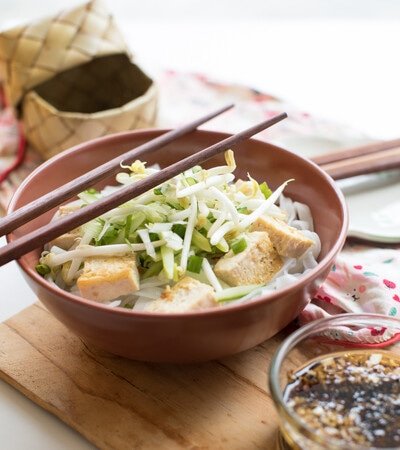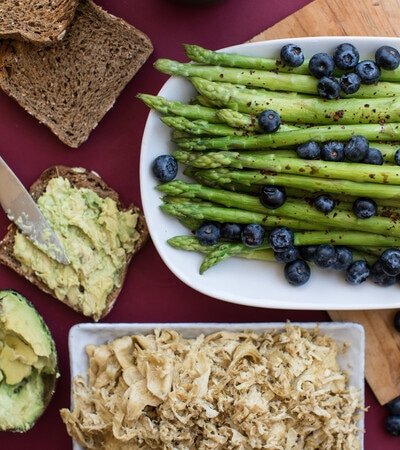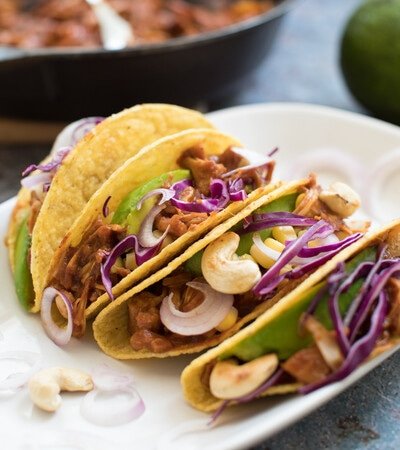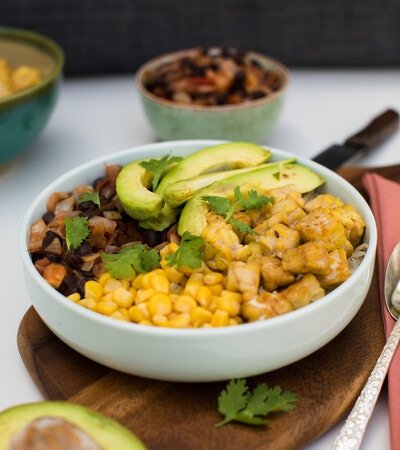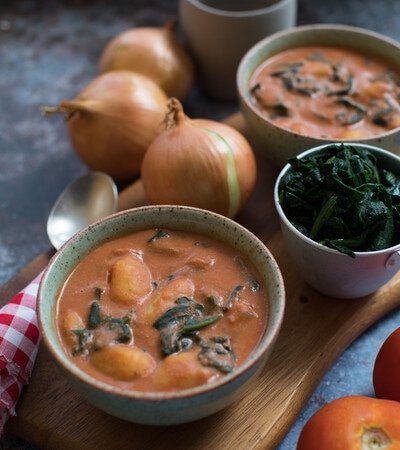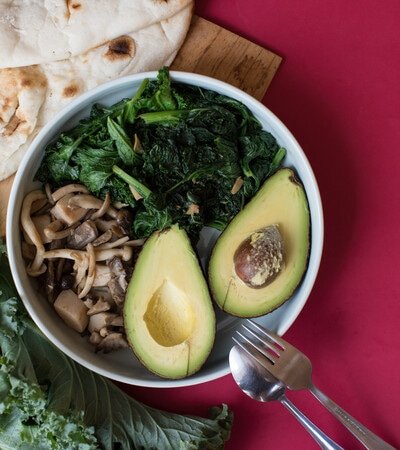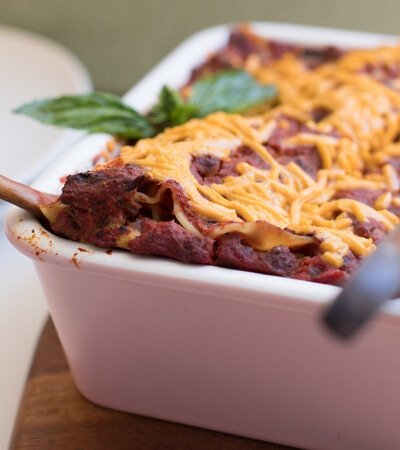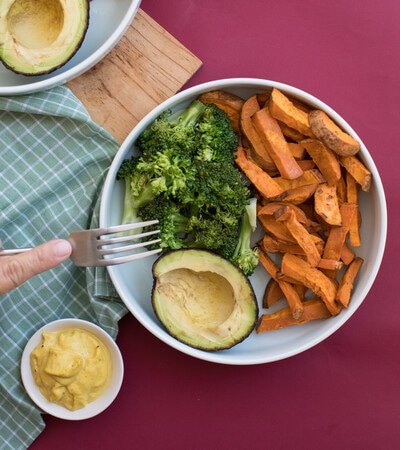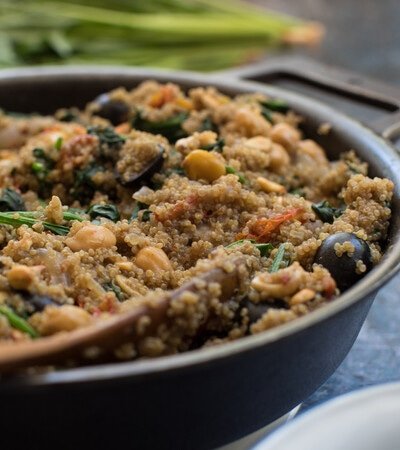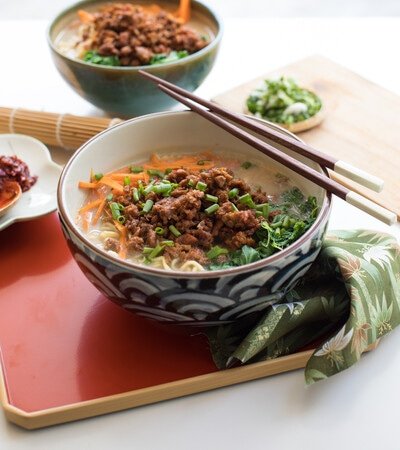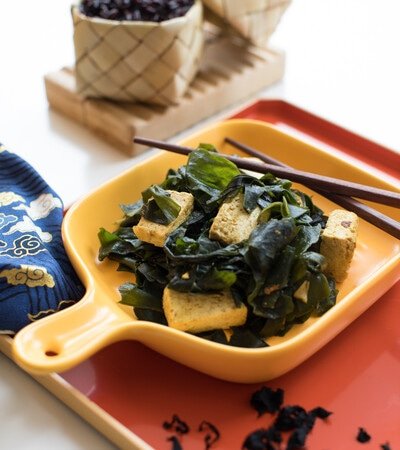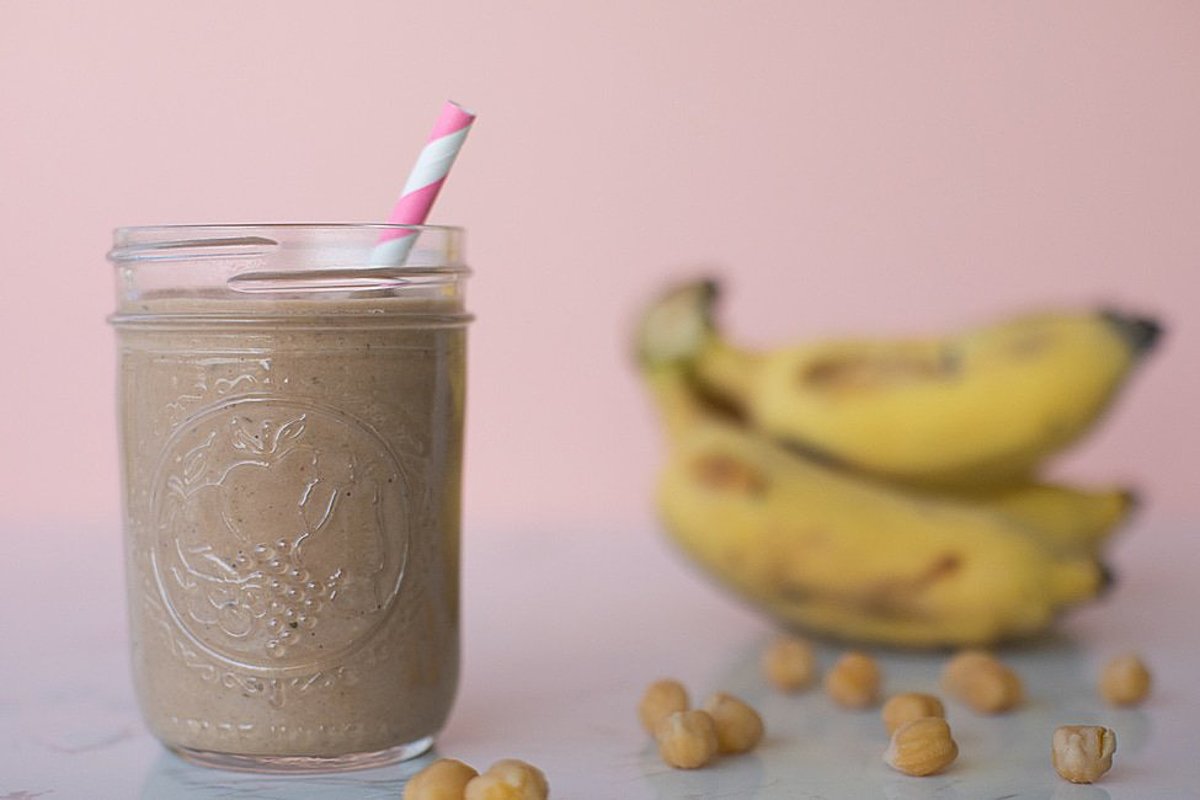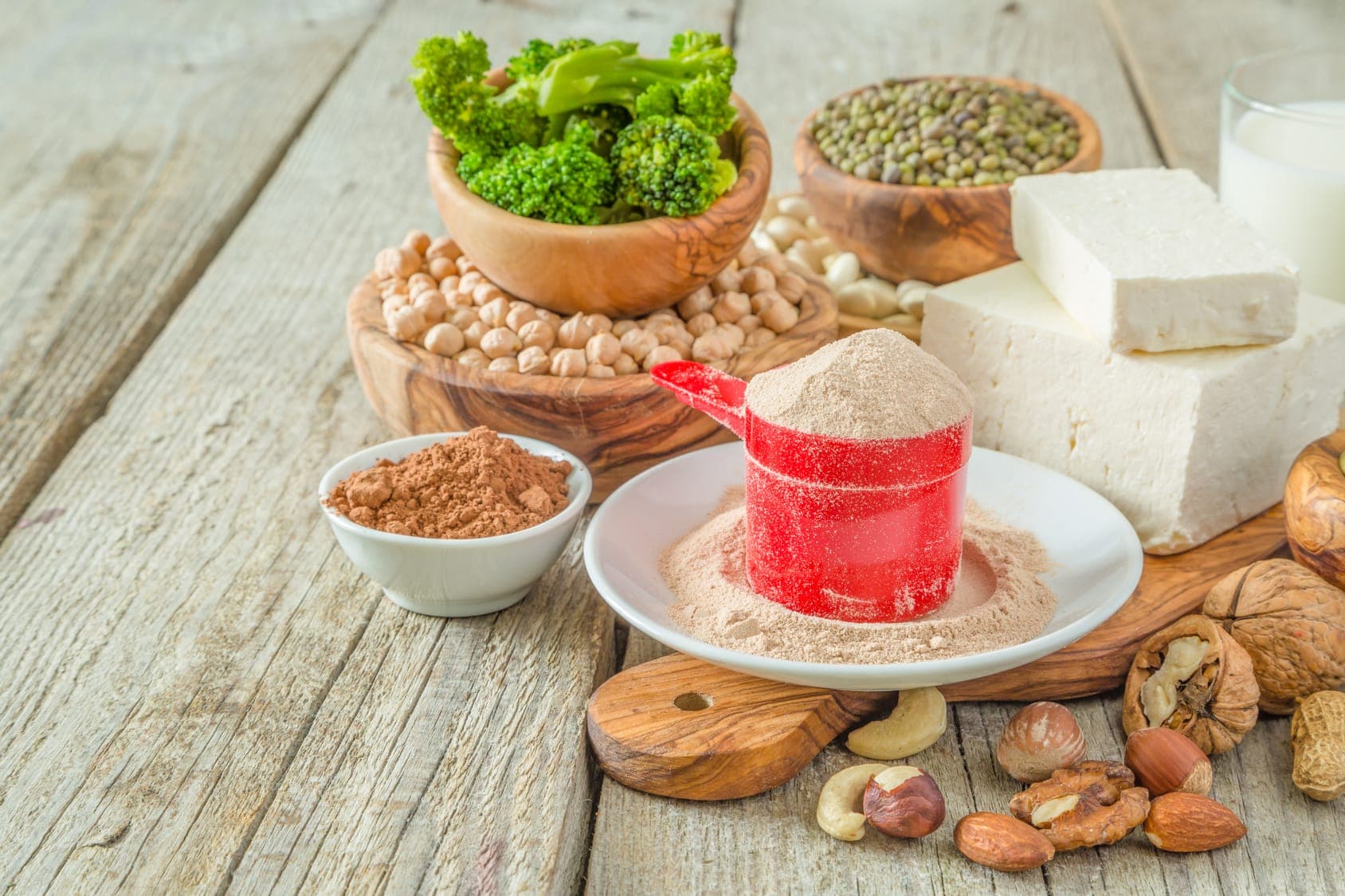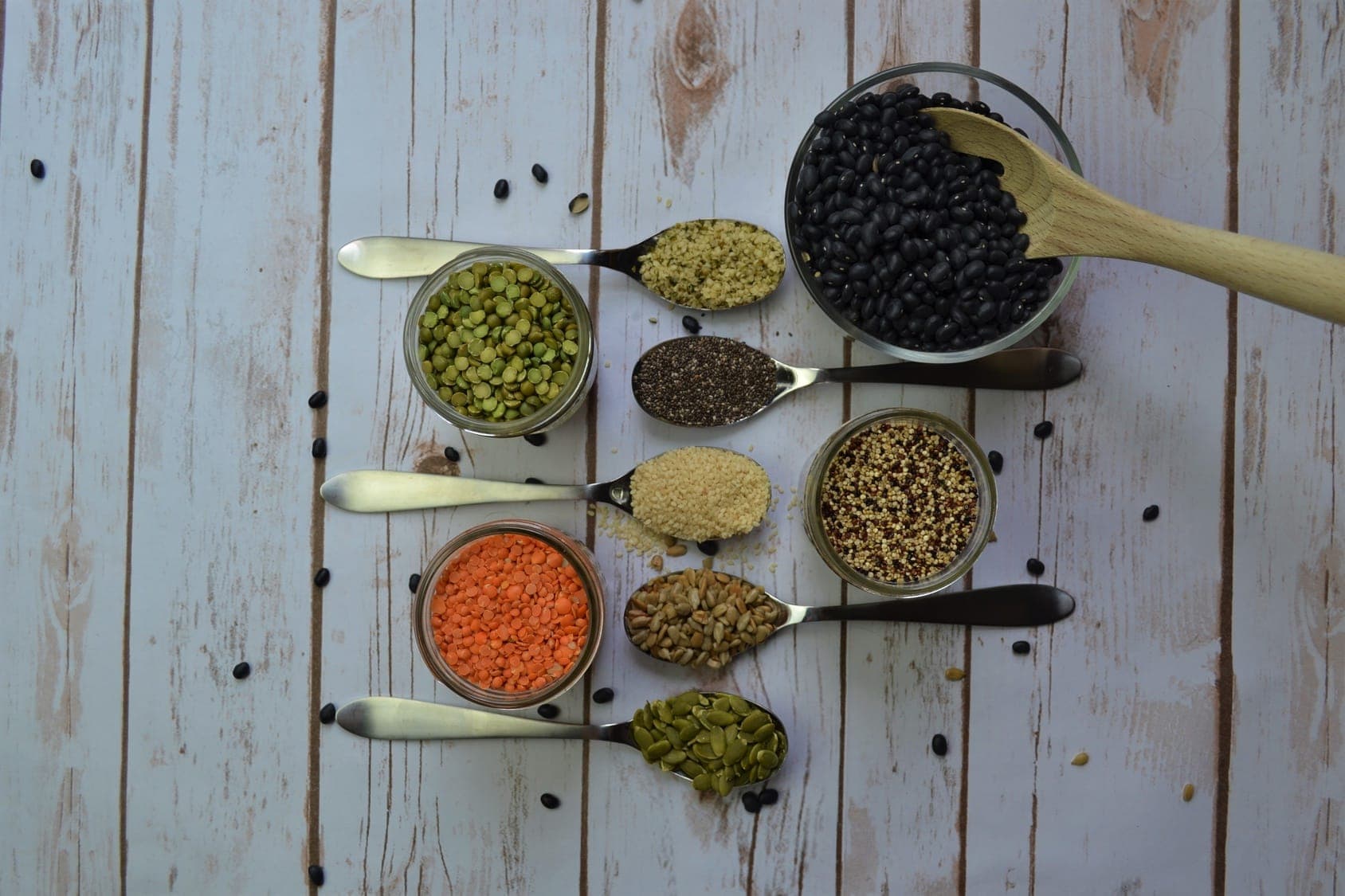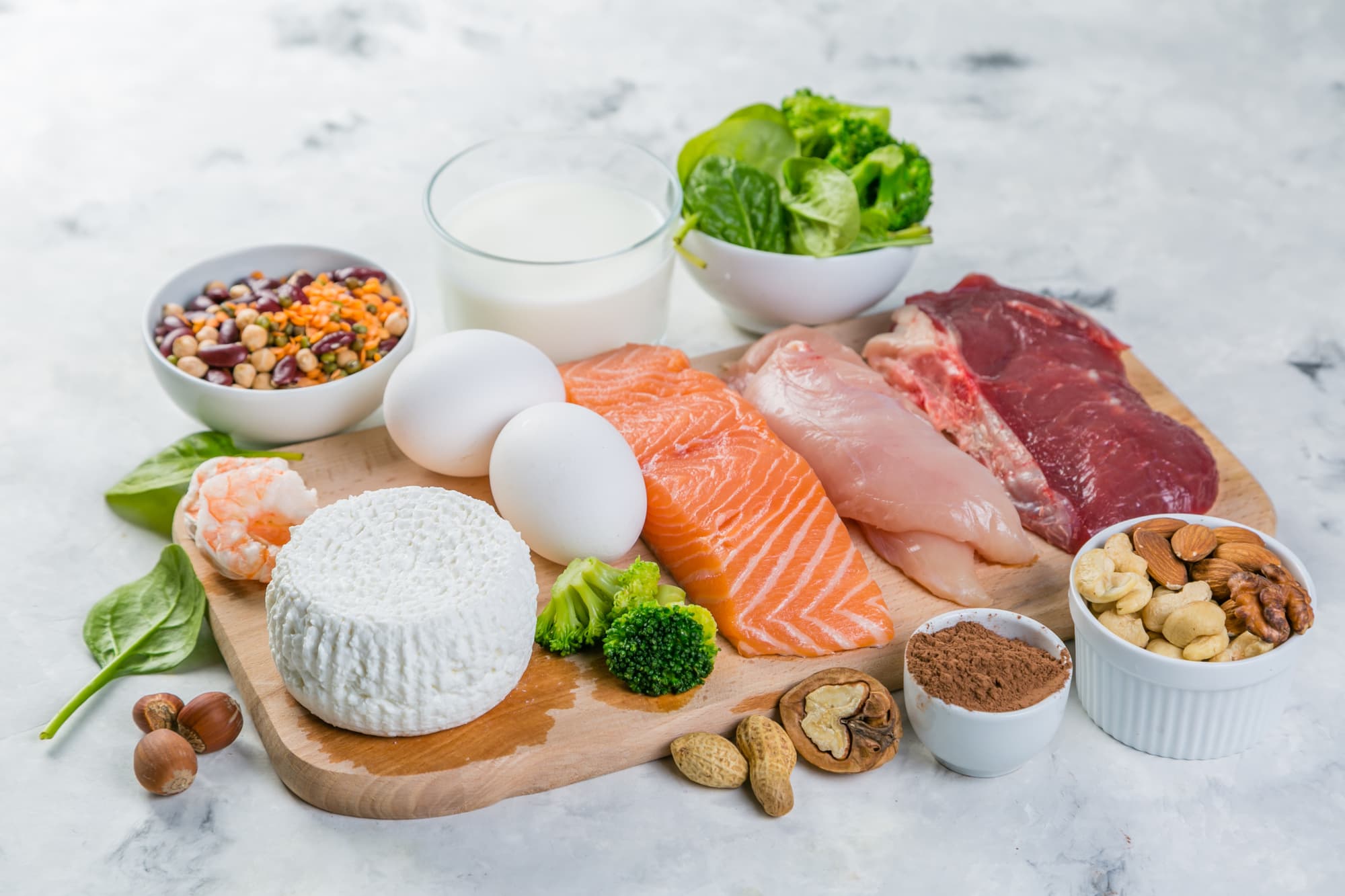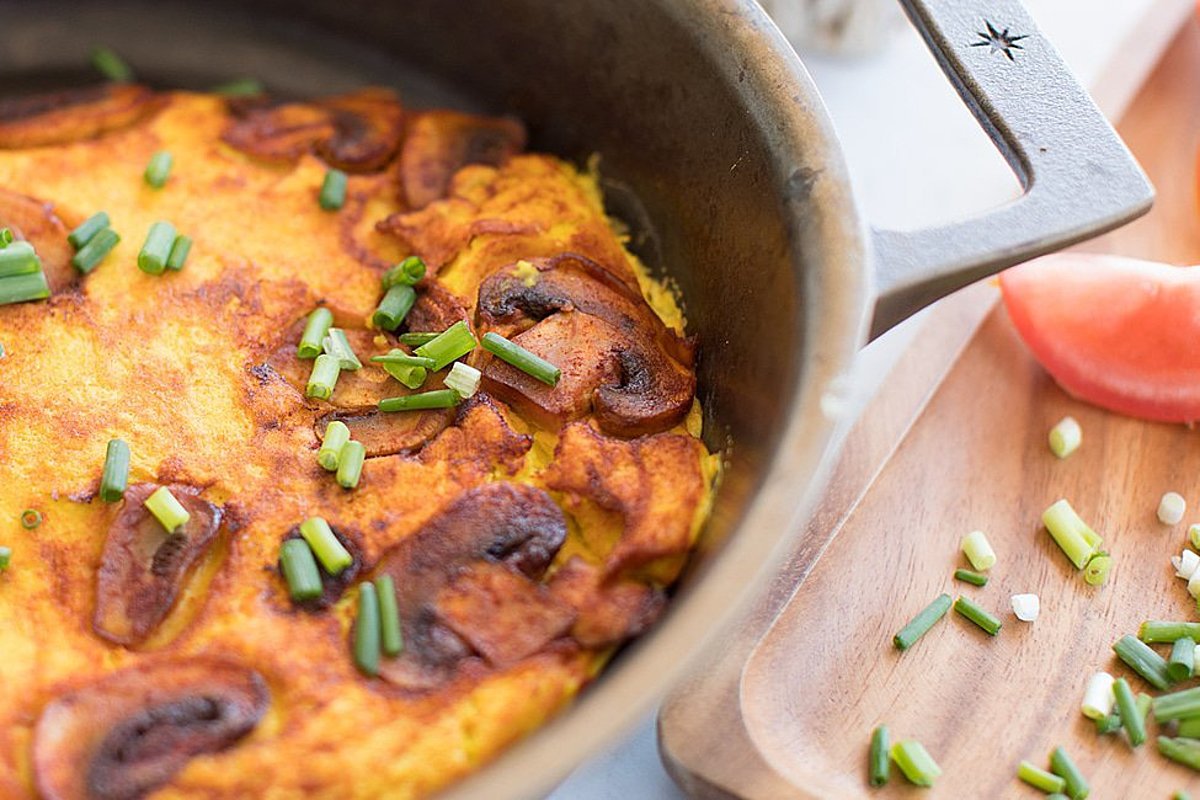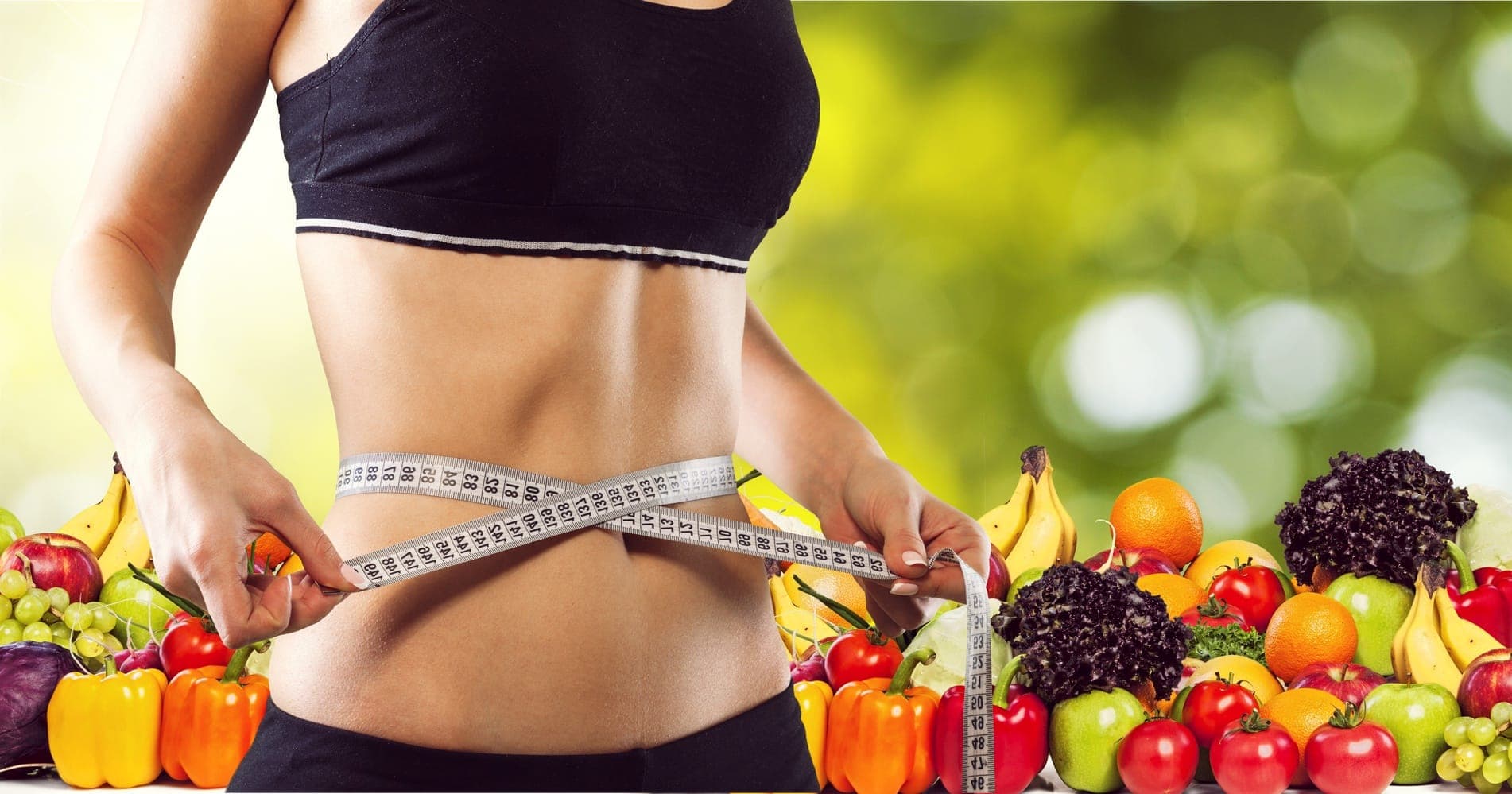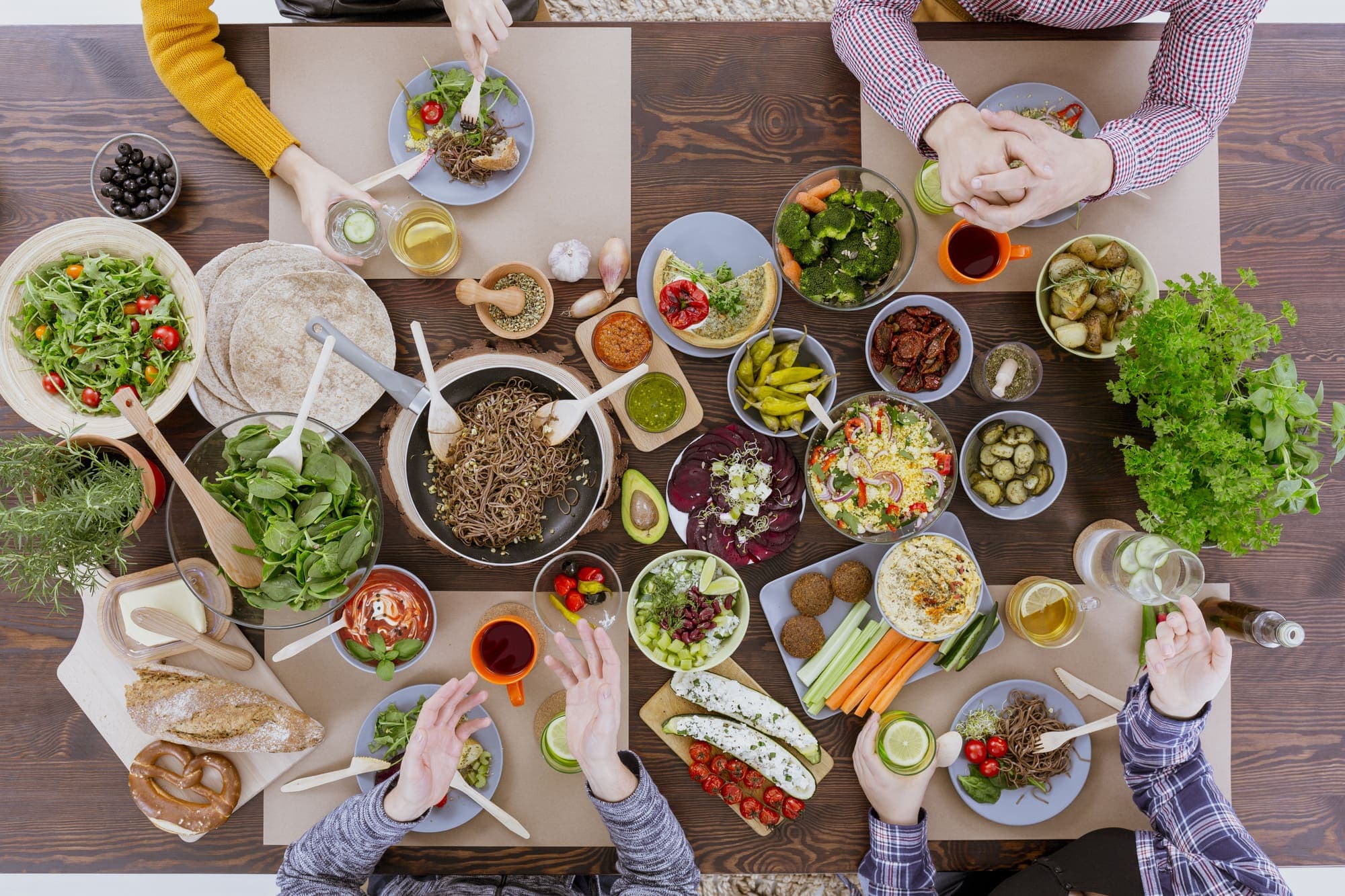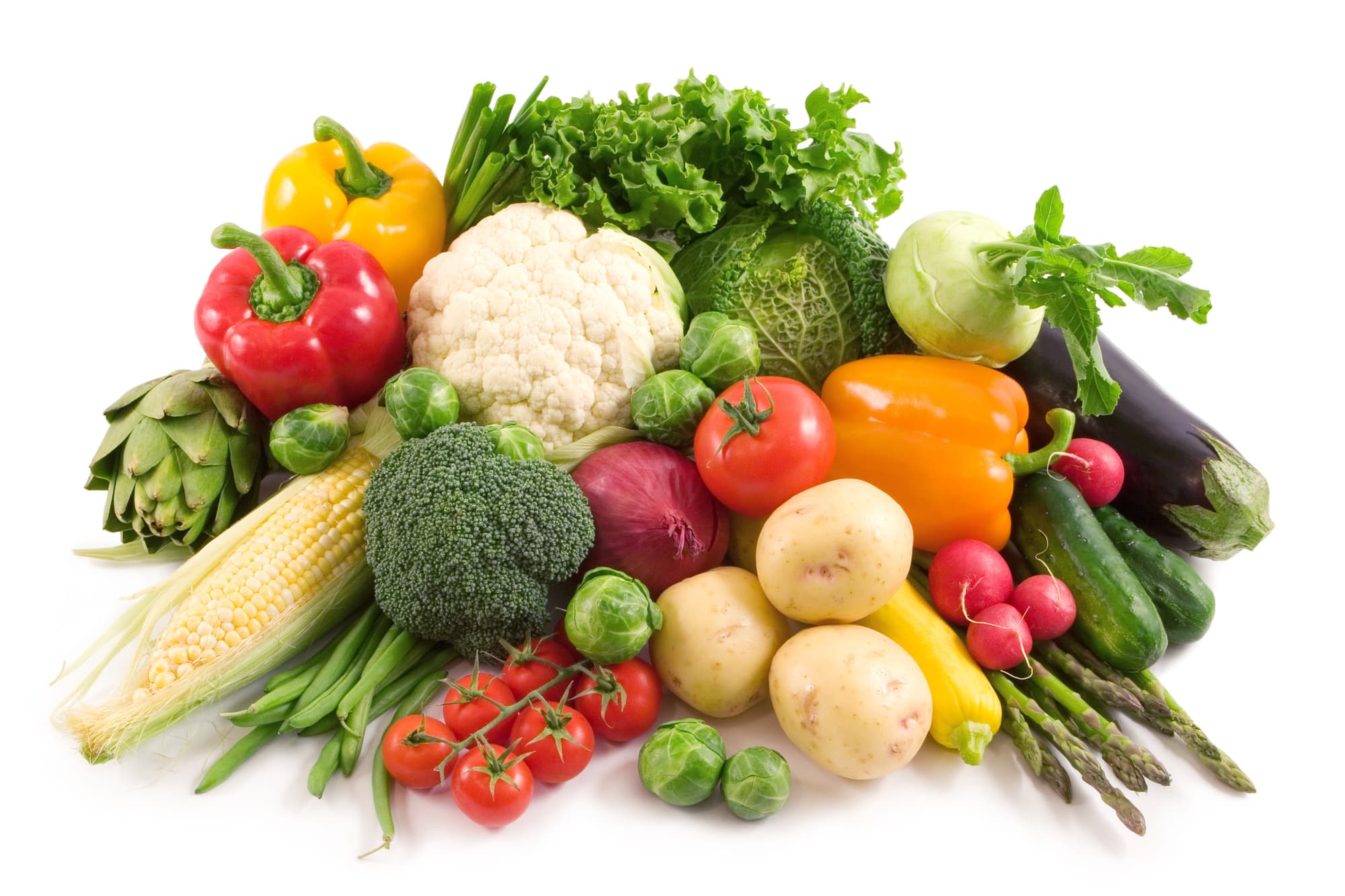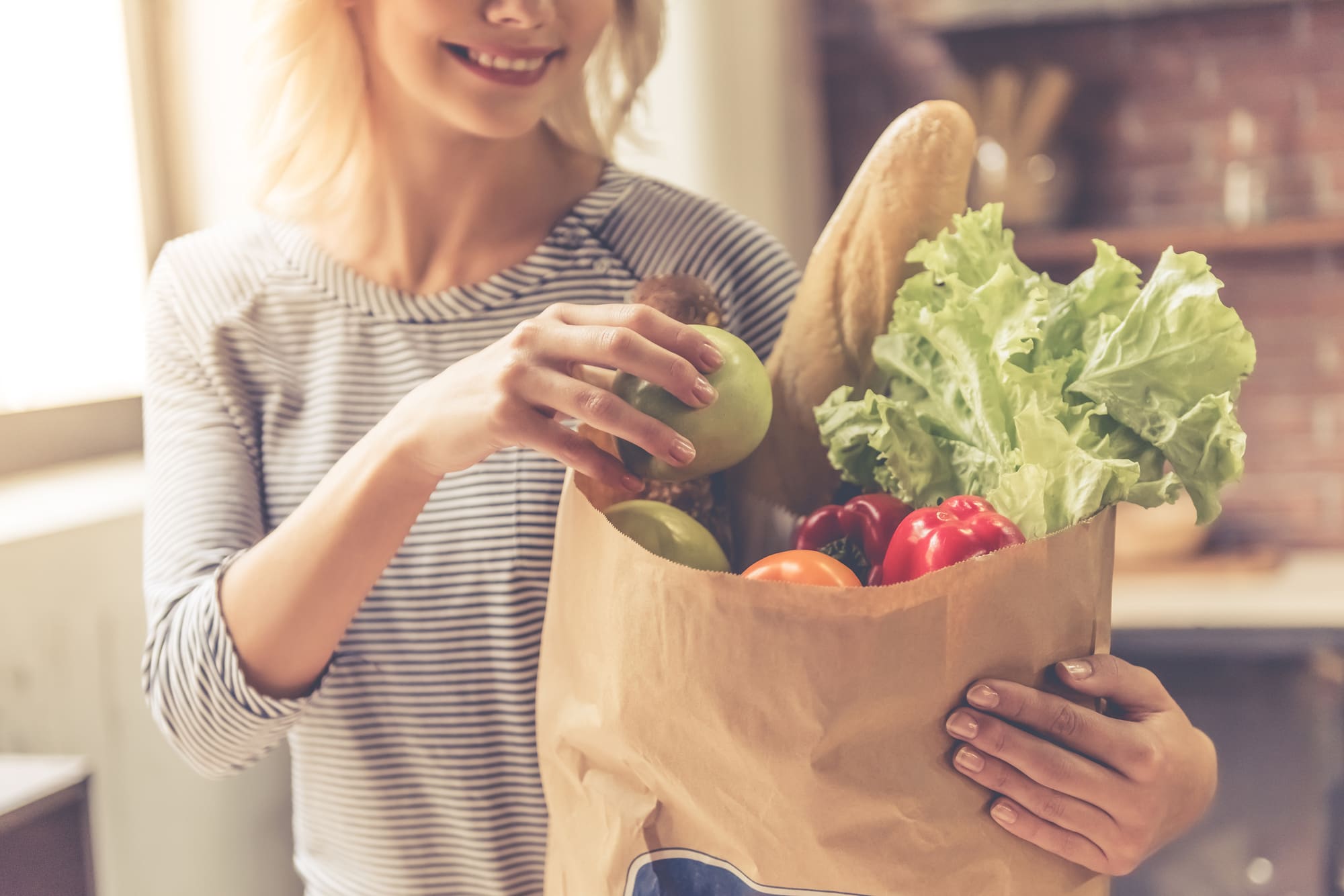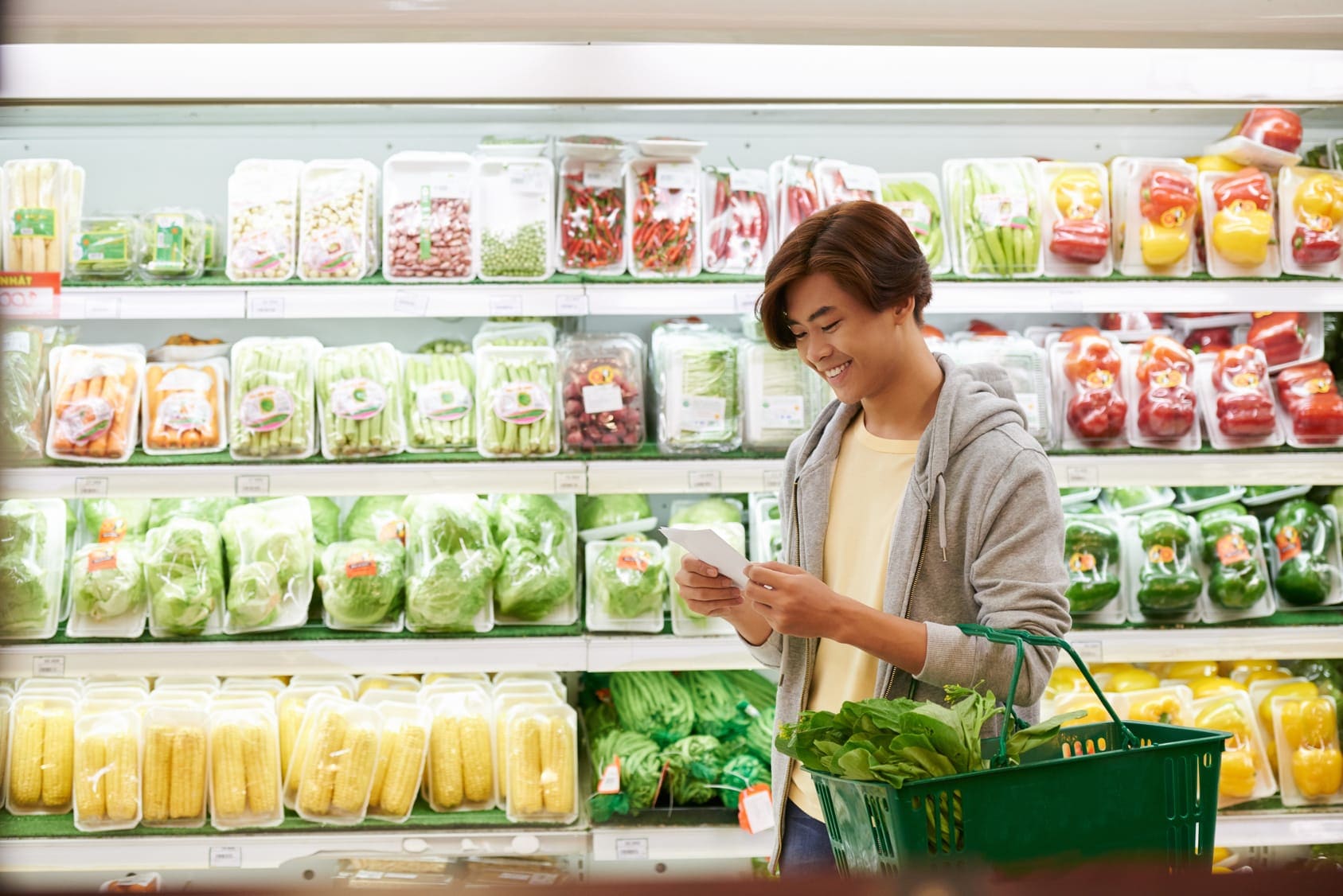
Word Count: 3223
Time to Read: 17 minutes
Contents
- Vegan Grocery List for Beginners
- Planning
- Understanding the Ingredients
- The Basic Pillars of a Vegan Grocery List
- Junk Food
- Supplements
- How to Make a Vegan Grocery List
- Free Meal Plan and Grocery List to Download
- Free Grocery List Template
- Conclusion
Vegan Grocery List for Beginners
Whether you’re going vegan for moral or nutritional reasons, re-hauling your entire diet is a major life change, and the whole process can seem overwhelming.
But that doesn’t mean it has to be difficult. As long as you do your research and take time for preparation, creating a brand new vegan shopping list will be a breeze.
Or maybe you’ve already started your vegan lifestyle, but are looking for some inspiration or ways to avoid nutrient deficiencies.
Just because you have chosen to remove animal products from your diet, it doesn’t mean that you have to limit yourself from delicious food options or miss out on important nutrients.
A well-balanced vegan diet can be chock full of fibers, minerals, and vitamins. It can lead to weight loss, lower cholesterol, and even lower your risk for heart disease.
We’re here to give you a run down on how to make a healthy vegan shopping list, for newbies and experienced vegans alike.
Planning
Before we get into the specifics of your vegan shopping list, it is important to stress how much a little preparation can help you along the way.
You wouldn’t walk into a grocery store without a list, right? That’s a pretty easy way to spend half of your day wandering a store aimlessly and getting home only to realize you forget half of the stuff you wanted.
So before you even get started on a list, think about the week ahead of you.
How many meals will you need to prepare? Are you planning on eating out for any of your meals? Are there any nights where time will be limited, and you need a quick and easy dinner?
Ask yourself all of these questions and then some to help decide what you want to eat for the week. Check out some different recipes in cookbooks, on vegan food blogs, or ask your friends and family for ideas. This will make planning your vegan shopping list simple.
If you’re just getting into the vegan lifestyle or don’t have much experience with meal prepping, it’s best to start easy and work your way up. For example, pick some recipes that you’re really comfortable with, then one or two new ones you want to try out.
It’s also a good idea to plan on having leftovers for some of your meals, that way you don’t feel the need to prep and cook for every single thing you eat throughout the day.
This is where Vegan.io can help by the way. If you use our meal planning app we will create grocery lists for you, and you can even filter out ingredients that you can’t get or don’t like.
Understanding the Ingredients
Another step before making your vegan shopping list is being in the know about what ingredients aren’t vegan.
I know, you would think it’s pretty simple, avoid animal products, right? But there are a lot of sneaky ingredients lurking in food that would surprise you.
These non-vegan ingredients are usually fillers or additives and can make shopping for packaged foods difficult. Some of the common offenders to look out for are whey powder, bone char, butter fat, carmine, and gelatin.
You can check out a full list of animal derived ingredients on PETA’s website.
Did you know that Oreos are vegan?
The Basic Pillars of a Vegan Grocery List
We’ll start off with the main areas for a healthy plant based diet.
Fruit
Fresh, frozen, and dried fruits should all be utilized in your vegan shopping list.
Just like frozen vegetables, frozen fruit will be full of vitamins and nutrients due to the fact that it’s frozen at peak ripeness. Use frozen fruits in smoothies for a nutritional start to your day, or top of your morning oatmeal with some fresh slices of strawberry.
We try to use frozen wherever possible in our meal plans to avoid leftovers.
Dried fruit is a great option for healthy snacking, which is essential to fighting cravings and avoiding bad moods.
One thing to keep in mind though is to not overdo the amount of fruit you add to your diet. It’s easy to think fruit is good for you, and therefore you can eat it non-stop, but too much fruit can lead to too many carbs.
- Apple
- Avocados
- Bananas
- Cantaloupe
- Cherries
- Figs
- Grapes
- Honeydew
- Jackfruit
- Kiwi
- Lemons
- Limes
- Mango
- Peaches
- Pears
- Pineapple
- Plums
- Watermelon
Berries
- Cranberries
- Blueberries
- Blackberries
- Strawberries
- Raspberries
Citrus
- Grapefruit
- Lemon
- Lime
- Orange
- Tangerine
Dried Fruits
- Apricots
- Banana chips
- Cranberries
- Dates
- Figs
- Goji Berries
- Mango
- Prunes
- Raisins
- Strawberries
Frozen Fruit
- Blueberries
- Blackberries
- Mango
- Mixed fruit blends
- Mixed berries
- Pineapple
- Strawberries
- Raspberries
Vegetables
Obviously, vegetables are going to be a huge part of your healthy vegan grocery list. Stock up on a variety of fresh and frozen veggies to ensure you don’t get bored with your meals.
Leafy greens are a great staple to have in a vegan diet. Just one cup of kale can provide you with whopping amounts of vitamins, like 206% of your daily value of vitamin A.
Shopping for in-season vegetables is a great way to get the best produce, and if you find a good deal, don’t be scared to stock up and freeze some for the future.
Buying frozen veggies will help you in the long run, due to their long life and versatility. They can be steamed, stir-fried, baked, whatever your heart desires. Another bonus of frozen veggies is that they are flash frozen when they are ripe, ensuring you get all of the good nutrients and antioxidants.
- Acorn squash
- Artichoke hearts
- Asparagus
- Broccoli
- Brussels sprouts
- Cabbage
- Carrots
- Cauliflower
- Celery
- Cucumber
- Eggplant
- Mushrooms
- Garlic
- Onions
- Peppers
- Radish
- Spaghetti Squash
- Tomatoes
- Turnips
- Zucchini
Starchy Vegetables
- Beets
- Butternut squash
- Corn
- Parsnips
- Pumpkin
- Sweet potato
- Yam
Green Leafy
- Arugula
- Bok choy
- Butter lettuce
- Collard Greens
- Kale
- Leaf lettuce
- Romaine
- Salad mixes
- Spinach
- Swiss Chard
Frozen
- Broccoli
- Brussel Sprouts
- Carrots
- Corn
- Edamame
- Peas
- Spinach
Grains
Whole grains are great sources of complex carbs, protein, vitamins and minerals.
Refined grains are processed and not as healthy. They are digested much faster and cause insulin spikes.
Stick to whole grains wherever possible. So for example substitute white rice for black rice.
Amaranth and quinoa are 2 of the few plant based complete protein sources. They also make a great rice substitute.
Grains do contain some antinutrients. Sprouting helps to reduce these.
Whole
- Amaranth
- Barley
- Buckwheat
- Bulgar
- Cornmeal
- Farro
- Freekeh
- Kamut
- Millet
- Oats and oat bran
- Orzo
- Rice (wild, black, brown)
- Rye
- Sorghum
- Spelt
- Wheatberries
- Whole-wheat flour
Refined
- Bread (white)
- Couscous
- Pasta
- Rice (white)
- Seitan
- Tortilla
- White flour
Beans and Legumes
Beans are the richest source of vegan protein.
They are also packed with many other important nutrients such as zinc, potassium, iron, B vitamins and magnesium.
Pair them with some vitamin C to improve iron bioavailability.
It’s important to integrate them into your diet. They are also super cheap if you buy them dry!
One of my favourite high protein breakfast recipes is this Chickpea Protein Shake
Dried beans contain antinutrients, which impede nutrient absorption, so it’s important to process them properly. They need to either be soaked overnight with a couple of teaspoons of apple cider vinegar, or cooked on a high heat in a pressure cooker.
But don’t be too worried! Getting some of these antinutrients is good for you.
For example, consumption of phytates has been found to help prevent kidney stones, diabetes, cancer and coronory heart disease.
Canned beans are already low in anti-nutrients, which are destroyed during processing. One study showed lectin was reduced to less than 0.1% of its original level
When buying soy products it’s important to look for non-GMO. In the 1990s GM soy crossed with peanut was created. It now makes up 90% of all soy products.
GMO foods like this may well be the cause of the spike in food allergies in recent years.
Soy
- Tempeh
- Tofu
- Edamame
Other
- Adzuki beans
- Black beans
- Black-eyed peas
- Chickpeas
- Chickpea flour
- Fava beans
- Kidney beans
- Lentils
- Lima beans
- Mung beans
- Navy beans
- Peanuts
- Peas
- Pinto beans
- Split peas
- String beans
- White beans
Nuts and Seeds
Nuts and seeds are a great source of healthy fats on a plant based diet. Fat gets a bad wrap but it’s essential for your health.
Along with fat nuts are also a great source of vitamin E, copper, manganese, selenium, zinc and various antioxidants.
They are naturally satiating, so although higher in calories they keep you full for longer. In fact one review of 31 trials found that people who included extra nuts and seeds in their diet lost about 1.4 extra pounds compared to those that didn’t.
- Almonds
- Almond Flour
- Brazil Nuts
- Cashews
- Chia
- Flaxseeds
- Hazelnuts
- Hemp seeds
- Macadamia nuts
- Pecans
- Pine nuts
- Pumpkin seeds
- Sesame seeds
- Sunflower seeds
- Tahini (sesame seed butter)
- Teff
- Quinoa
- Walnuts
Spices and Herbs
Spices and herbs can make a huge difference to the end result of a meal.
They can make it bitter, cooling, earthy, floral, fruity, herbaceous, hot, nutty, piney, pungent, sour, spicy, sulfury, sweet and woody.
However, did you know that they are also packed with antioxidents and other health benefits?
Curcumin is a potent anti-inflammatory with effects comparible to ibuprofen, but without the health risks. It’s also anti-microbial and helps against cancer.
Garlic is another antimicrobial that also decreases blood pressure and tastes great of course.
Parsley promotes health hair due to a flavanoid called apigenin. Plus it helps prevent halitosis and flatulence.
- Basil
- Chives
- Cilantro
- Cinnamon
- Chili powder
- Cumin
- Dill
- Garlic
- Green onion
- Ground ginger
- Nutmeg
- Oregano
- Paprika
- Parsley
- Rosemary
- Thyme
- Turmeric
Milk Substitutes
There are loads of great plant based milk products out there.
Almond milk is one of the most popular, and it’s super easy to make too!
Cashew milk is super creamy. It can be a bit pricy though.
Coconut milk is another really creamy one. It tastes great but there are 230 calories per 100g, due to the high saturated fat content.
Flax milk is a bit thinner than other milk substitutes. It’s contains omega-3 though.
Hazelnut milk tastes great in coffee. It’s low calorie and a great source of B vitamins. Another expensive one though.
Hemp milk is another thinner one. It contains lots of calcium.
Macadamia milk contains omega-7, which is a rare fat. It helps against insulin resistence, high blood pressure and obesity.
Oat milk is full of fiber, has 0 saturated fat and contains 5 grams of protein per cup.
Rice milk is very light and watery. Good for those with soy/nut allergies.
Soy milk is probably the most commonly used milk substitute. It’s a decent creamy substitute for regular milk, but stick to non-GMO.
Oils and Fats
The are lots of people who follow the whole food plant based vegan diet which contains no processed oils.
We still use oil in our plant based recipes, but only very small amounts.
Some oils have a low smoke point. This is the point where they start to produce toxic fumes and free-radicals. So you want to avoid those for frying.
Extra virgin olive oil has a smoke point of 160°C, so use this one for drizzling on salads.
Olive oil on the other hand is great for frying.
Coconut oil is another good oil to add to your grocery list for frying.
Avocado oil is packed full of vitamin E and lutein, which may reduce the risk of cataractrs and macular degeneration.
It’s great for frying and for drizzling but it’s on the expensive side. Definitely worth it if you have the extra $.
- Almond oil
- Avocado oil
- Canola oil
- Coconut oil
- Coconut butter
- Extra virgin olive oil
- Grapeseed oil
- Macadamia oil
- Olive oil
- Rice bran oil
- Sesame oil
Sweeteners
- Agave syrup
- Coconut sugar
- Maple syrup
- Molasis
- Rice syrup
Condiments
- Apple Cider Vinegar
- Apple Sauce
- Baked Beans
- Balsamic Vinegar
- Curry Paste (check if it contains shrimp)
- Dark Soy Sauce
- Guacamole
- Hummus
- Kombucha
- Lemon Juice
- Liquid Aminos
- Miso Paste
- Mustard
- Rice Vinegar
- Salsa
- Soy Sauce
- Water Kefir
Other
Here are ingredients that we didn’t know where else to put, but that doesn’t mean that they’re not important.
Actually fermented foods are full of health benefits. Particularly natto, which is one of the highest sources of vitamin K2.
- Kimchi
- Natto
- Nutritional Yeast
- Seaweed
- Sauerkraut
- Vegetable Broth
Junk Foods
So that’s the end of the healthy plant foods that you should be eating in order to be a healthy vegan.
Now onto the junk foods. Adding a few of these to your grocery list occassionally won’t hurt, but try to avoid eating them regularly.
If you are currently transitioning to a plant based diet then the fake meats can really help.
Fake Meat
There are lots of fake meat products out there on the market so we’ve just listed a few of the newer ones.
Popular brands are Beyond Meat, MorningStar Farms, Gardein, Tofurky, Field Roast, Yves Veggie Cuisine, Trader Joe’s, Lightlife, Boca Burger, Sweet Earth Natural Foods, Simply Balanced.
- Beyond Meat Burger Patties
- Field Roast Vegan Sausages
- Upton’s Naturals Chili Lime Carnitas Jackfruit
- Tofurky Treehouse Tempeh Smoky Maple Bacon Marinated Strips
- Field Roast FRuffalo Wings
- Gardein Classic Meatless Meatballs
- Yves Veggie Pepperoni Slices
- Sweet Earth Foods Hickory & Sage Benevolent Bacon
Breakfast
You may be surprised to know that most breakfast cereals are full of sugar, even the “healthy” ones.
Granola is full of sugar and fat. If you check the serving size on the side of the container it’s a huge amount of calories in a tiny amount.
Here’s our list of not so healthy breakfast items:
- Bagels
- Cereal
- Granola
- Muesli
- Pancake Mix
- Waffle Mix
Snacks
- Crackers
- Corn Chips
- Donuts
- Potato Chips
- Pretzels
Sweets
- Candies (check that they don’t contain gelatin)
- Cookies
- Chocolate
- Oreos
- Popcorn
Supplements
B12 This vitamin is not available from food sources in a vegan diet. It’s very important to supplement. A B12 deficiency can lead to depression, paranoia, delusions, memory loss and more
DHA/EHA These omega-3 oils may help to lower blood pressure, reduce the likelihood of heart attack or stroke and lower inflammation. Omnivores would supplement with fish oil, but vegans can supplement with algae oil (where the fish get theirs from).
Creatine can increase muscle mass, strength and exercise performance. It may also help with parkinsons disease, improve brain function and reduce fatigue. There are no sources in the vegan diet.
Iodine is important for your thyroid health. If you incorporate seaweed into your diet then there is no need to supplement. It’s actually pretty easy. Just throw nori flakes into some of your meals.
Vitamin D3 Just 5-30 minutes of sun exposure between 10am and 3pm twice a week to the face, arms, legs or back without sunscreen is enough to boost your vitamin D3 levels, according to the NIH. However, if you aren’t lucky enough to have sun all year around, it’s a good idea to supplement.
How to Make a Vegan Grocery List
So now you know about all the ingredients, but how to actually create your own list?
-
Find some websites where you can search for recipes by ingredients. You can do that on our recipes page here.
-
Choose some healthy ingredients from different categories in this blog post and search for recipes containing them.
-
Pick out breakfast, snack and dinner recipes for the week. To save cooking time you can have leftovers from dinner for lunch on the following day.
-
Once you have all your recipes collect all the ingredients, add them to your grocery list and you are ready to head to the store!
Of course this is a bit of a pain. It’s much easier to signup to our meal plan service and let us do all the hard work for you!
Free Meal Plan and Grocery List
Here’s a free bonus for you! A full one week vegan meal plan and shopping list created by our algorithm.
This plan was generated for a woman, aged 30, moderately active, aiming to lose weight.
If you would like a meal plan customized for you and your family then signup for a trial today!
Vegan Meal Plan

Vegan Grocery List

Grocery List Template
And here is a full grocery list template with all of the ingredients from this blog post.
Of course we think it’s a lot easier to go with a meal plan and grocery list created for you by vegan.io!
Download Your Vegan Grocery List Template

Conclusion
So there we have it, everything about a vegan grocery list.
Now you know all the different ingredients available. Which ones are healthy and which ones to avoid.
You’ve learned which supplements you should add to your list.
I’ve explained how to create your own grocery list and given you a free template.
You even have a sample one week meal plan, although it’s only going to be a perfect fit if you are the exact age/height/weight/activity level/etc of the example woman we used to create it.
Making a grocery list is really only part of the puzzle. You also need a healthy meal plan which matches the nutritional requirements of you and your family.
This is where vegan.io comes in. So maybe I’ll see you inside our app soon!
